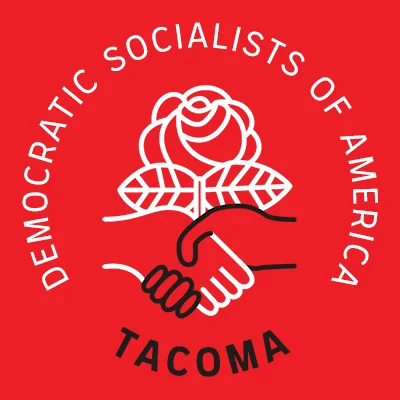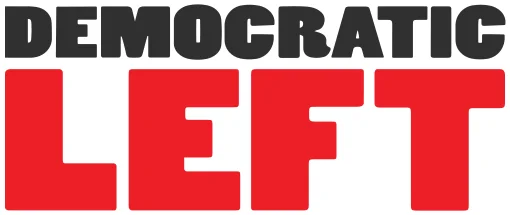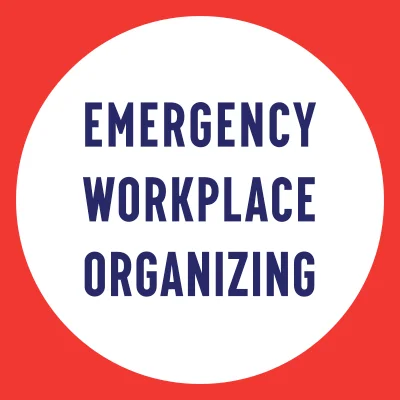

For the People, By the People: How Civic Assemblies Bolster Socialist Governance


Original Sinners: Vampires, Colonialism, and the Story of America


Notes from the Field: On Frankie Fritz's Greenbelt Victory


On the Significance of Queerness and Blackness to Bodily Autonomy in the Age of ICE
What does it mean that so much of the discussion around Renee Good emphasizes her vaunted status as a mother and a citizen, and tends to elide the fact and significance of her queerness? Which characteristics does this focus tacitly endorse as meriting protection and which are prone to fall out of our analysis? We are right to identify that these ticks in the boxes of ‘moral goodnesses’ did not and could not protect her – her whiteness, her status as a mother, her smile. But we also need to understand which characteristics endangered her and which are, further, responsible for the propagandistic effect of the snuff film DHS produced of her.
Renee Good was a non-conforming, unsubmissive, queer woman. This is enough for a Nazi to advance on her vehicle and shoot multiple rounds in her face as he calls her a “fucking bitch”. Good’s queerness, both in her choice of partner and her practice of solidarity politics, is material to her targeting and execution. To queer is precisely to intervene into and resist hegemonic structures of power; to queer is to bend the arc of normativity’s force. To queer is to insist on the dignity of a life that the supremacist state wishes to eliminate: to legislate or incarcerate or convert away. Renee Good’s queerness is thus manifestly relevant to her resistance, and to the state’s justification for her targeting and murder.
I argue here that we must also pay attention to the racialized violence that, as I discuss in an earlier piece, accompanies gendered violence and which tends to be even less articulated in mainstream discussion. Renee Good is not the first person to be killed by the secret police, or even shot at in their cars. And in the wake of her murder, DHS and ICE moved to occupy Minneapolis, adding to their terror-from-a-distance of threatening food stamps and childcare money. The occupation has made a beeline to the most vulnerable communities, among them Somali and Native communities, attacking and abducting people with a speed and volume that prevents the same depth of articulation of each resister’s life. Yet we see the same principle acting in all cases: the targeting of what white supremacist domestic policy has identified as threats to this oppressive order.
The inability to countenance the violence ICE is enacting as a matter of course on black and brown people and communities– or our susceptibility to the normalization of the agency’s charter to target these populations since its inception in 2003– has a meaningful impact on the kind of carceral abolition we can imagine and demand. We understand the history of police in america as a history of slave catchers: an agency devoted to the perpetuation of the legal status of Black people as owned property, as chattelized beings without bodily autonomy and without rights and protections. In this way the police as they exist now continue to be agents of the United States’ white supremacist project, the very same project that ICE and their terror tactics pursue. That is why, to every call to abolish ICE, we add the call to abolish the police: the existence of armed groups tasked with the ideological order of the country is a threat to everyone, even to those who have footholds within that order.
Above, I call the video released by DHS of Renee’s execution a “snuff film”. I am not the only one to identify this as a propaganda tactic, as a call to the misogynists and gaybashers: ‘see, if you join ICE, you can execute “lesbian bitches” with impunity’. We can imagine the quickening of the fascist’s pulse as they take in this de facto recruitment video, even as all of our hearts sank watching (or avoiding watching) the same. I write this piece in an attempt to make plain the logic of ICE’s operation, so that we do not see Good’s execution as an exception insofar as she was white, a mother, and a citizen, but that we rather understand her queerness as dissent, understand queerness itself as a target for elimination, and understand how this is continuous with ICE’s genocidal plans against Black, Native, Latin@, and other racialized people. In my opinion this understanding is crucial to forging and enacting solidarities that are critical in this moment, and in the moments which develop from it.
Bodily autonomy means: freedom from police, from incarceration, from state violence.
Bodily autonomy means: choosing our communities and relations, and the forms of those relations.
Bodily autonomy means: a right to migration, to assembly, to resistance.
The struggle against ICE is fought precisely for these freedoms and autonomies, and this makes critical analysis of gender and race– and particularly their joint analysis– indispensable.
Caitlin Murphy


Clouds Over Havana
A member of the National Political Committee saw the consequences of the blockade and the potential for international solidarity as part of DSA’s second delegation to Cuba.
The post Clouds Over Havana appeared first on Democratic Left.


MADSA’s Electoral Strategy & The Fran Hong Endorsement
by Aaron L
Since the April 2025 Chapter Convention, MADSA has slowly been reconfiguring its electoral strategy. Two key events emerged from the 2025 Chapter convention. First was the passage of a pair of resolutions: “Doing Politics in Public,” and “Towards a Local Political Program.” These resolutions oriented the chapter to the work of mapping out the city’s power structures, our membership’s distribution within the city, and interfacing with the public to generate a political program based on the needs of the city’s population. The second key event was the Electoral Working Group’s failure to recharter. This all pointed MADSA’s electoral work in a specific direction of building up a ground-floor strategy that aimed for the common council races in 2026 as the time to implement the work of the program and powermapping resolutions. This was reaffirmed in the August General Meeting with a district by district strategy to approach the 2026 common council races.
Then in August, murmurs of MADSA’s endorsed State Assemblymember, Fran Hong running for governor began to surface. Rep. Hong announced her campaign for Governor on September 16th, with a launch party on the 17th. Following this, a Members-only town hall occurred on September 29th. The chapter was not consulted before Rep. Hong’s decision to run was made. Further, as of the September General Meeting, the Electoral Working Group was rechartered. Adding to the emerging maelstrom of electoral ongoings, former DSA-Endorsed Common Councilor Julianna Bennet (and now two other dsa members) have announced runs to fill Fran’s vacancy in the 76th district. There is a mess of electoral opportunities and priorities.
As the old adage goes, the DSA is at a crossroads. MADSA stands at a juncture between continuing on the path of intentional building locally, or chasing a bold statewide campaign which we have little leadership of. It is no doubt a thrilling proposition to be involved in a Gubernatorial run and to be a legitimate piece of the engine which drives that campaign. However, to engage in such a campaign is to set aside the greater project of building our own vehicle which we ourselves have the keys to.
The decision on whether or not to endorse Rep. Hong’s campaign has not officially been made. For the long-term electoral building of the chapter, and for Rep Hong’s lackluster ability to meet DSA endorsement standards, the chapter should not endorse Fran Hong for Governor.
DSA Endorsement Standards
One last piece of the springtime reimagination of the chapter’s electoral operation, was the passage of a new “Endorsed Candidate Policy.” This set standards which every candidate seeking the endorsement of the chapter would have to uphold, as well as the commitments from the chapter in terms of contributions to the endorsee’s campaign. Emerging from the town hall with Rep. Hong there is substantial doubt of her ability to uphold those standards. In response to a question about committing to endorsing the DSA’s candidate to fill her now-vacant 76th district seat, Rep. Hong expressed that she did not plan to endorse in the race. The endorsed candidate policy outlines that any endorsed candidate would be expected to endorse DSA candidates in other races. The lack of hard commitment by Rep. Hong to do so casts a shadow over any potential endorsement. Additional answers on questions about aligning with national DSA priorities in party-building, divestment from Israel, and explicit socialist branding and policies left much to be desired.
The National DSA convention of August 2025 passed the National Electoral Commission’s consensus resolution which calls for the DSA to:
Build political independence from the Democratic Party establishment by prioritizing running cadre candidates for state and local legislative office who:
- Have backgrounds as activists and organizers within DSA, the labor movement, and aligned organizations.
- Publicly identify as Democratic Socialists and use their campaigns to overtly and proudly promote and advocate for Democratic Socialism.
- Work in deep collaboration and coordination with their local DSA chapter, both in their campaigns as a candidate and once in office as an elected official.
Rep. Fran Hong’s answers in the town hall fell short of those guidelines. The majority of Hong’s engagement with the DSA has been around endorsement for her campaigns. There has been little to no “deep collaboration” with the chapter. Her background in DSA is largely as a paper member, not one who is active in discussions or chapter work. As a member at the town hall pointed out, her campaign website did not initially use the word “socialist” anywhere on it. Several weeks after the town hall, Hong did add the label of “democratic socialist” to her campaign website.
Additional electoral resolutions which passed at the convention included plans to run labor candidates, which once again emphasized their branding as democratic socialists. Resolution 20 aims to run labor candidates and develop communications that: “emphasize their labor identity and program in addition to their identity as democratic socialists.” Resolution 33 calls for running a presidential candidate “who will primarily publicly identify with and promote DSA, socialism, and/or a left-labor coalition rather than the Democratic Party.” Rep Hong roughly fits that third qualification, but not in a concrete and committed manner. A loose commitment from the representative to point volunteers from the campaign towards the DSA was as good as it got in the town hall.
Previous conventions oriented the national DSA towards prioritizing “cadre candidates” in electoral work. Within the DSA context, a “cadre candidate” is one who has been a long-standing active member. A member who has developed and grown politically with the DSA. A member who is loud and proud with identifying the DSA as their political home, and one with strong ties to other members and to the membership of their chapter as a whole. Fran Hong is not a cadre candidate. Though a long running relationship exists with the chapter, Rep Hong has not been firmly in the chapter’s orbit, nor has she played an active role in the day to day organizing of the chapter. She has participated in the free school meals campaign, but was not a driving, leading force therein. All that to say, though she is a DSA member, she is not a DSA candidate. Look no further than the decision to run for governor without first coming to MADSA or any other DSA chapters statewide for proof of this.
This connects to the other side of why not to endorse Rep. Hong for governor. The long-term electoral strategy of the chapter.
Long-Term Electoral Strategy
The decision nationally, as well as locally, to prioritize cadre candidates in electoral work is no whim. It is a deliberate choice for the benefit of the long-term electoral development of the organization at the national and local level. If we are to build an electoral project which is up to the task of fighting the creeping fascism from the federal capital; If we are to rival the socialist party and the progressive movement of a century ago; Then we must build intentionally from our own ranks.
Francesca Hong, for all of her strengths, is not a MADSA-developed member. She is not a DSA cadre, and this campaign is not under DSA leadership.
A flashy run for an executive position at the state level is not the most productive use of MADSA resources. To place significant resources behind a candidate who does not act as if she is our own candidate weakens our ability to build campaigns with cadre members of the chapter. It will be a monumental undertaking to get Rep. Hong within a stone’s throw of the governor’s office. The commitment of canvassing at a level to make this either a winnable campaign, or an effective agitational campaign is immense. The chapter was without a chartered electoral working group for several months of this year. Is this campaign the best place for us to pick up that work?
We have decided on a general electoral strategy. One of building up capacity in Madison and aiming to win races at the common council level in districts with high membership density. One of building our own platform and our own program for socialist politics in Madison and beyond. One of running candidates drawn from the active ranks of membership who will place the chapter in the driver’s seat of the campaign. One where the relationship with the chapter is undeniable and unshakeable. To endorse Fran Hong’s campaign and to offer substantial resources from the chapter to her campaign is to divert from that strategy before it has had the chance to come to fruition.
Now one might feel compelled to induce the old proverb “a bird in the hand is worth two in the bush.” Why focus on hypothetical future candidates when we have a stellar gubernatorial candidate right here in front of us? And to answer this question I will turn to the legendary socialist Eugene Debs. In his essay “Danger Ahead” Debs stated that:
“I yield to no one in my desire to see the party grow and the vote increase, but in my zeal I do not lose sight of the fact that healthy growth and a substantial vote depend upon efficient organization, the self-education and self-discipline of the membership, and that where these are lacking, an inflated vote secured by compromising methods, can only be hurtful to the movement.” Rep Hong is a good candidate for governor. Amongst the Democratic Party field she stands out as stellar. However, if we are to build the DSA, we cannot hitch ourselves to the best of the Democratic field at any given time and hope for the best. Even if that best Democrat is a DSA member and has received endorsement in the past.
Our priority should be DSA candidates, running as DSA candidates. It would not be a stretch to say, in response to the bird and bush adage, that we in fact do not even have a bird in the hand. We do not have, in Representative Hong, a compelling enough candidate to be worth sacrificing the progress we have made in developing our own independent, socialist electoral project in Madison.
Wisconsin once boasted the strongest bastions of the Socialist Party in the country. Milwaukee, until the win of Zohran Mamdani in the New York City mayoral race, was the largest city in the country to have socialist leadership. In 1924, Wisconsin was the last state to cast electoral college votes for a left-wing third party. The legacy of socialism and socialist electoralism in Wisconsin runs deep. If we are to add to that legacy and to write more chapters in the illustrious history of Wisconsin socialist politics, we must continue on the path we set ourselves at the last chapter convention. Slow and steady independent building is the path forwards.


Voting Eligibility Rules
Milwaukee DSA Voting Eligibility Rules
Milwaukee DSA bylaw 3.1 defines members as, “those individuals whose dues are paid in full to DSA, who reside and/or work in the Greater Milwaukee area (Milwaukee County and the surrounding counties of Kenosha, Ozaukee, Racine, Washington, and Waukesha). Individuals may not be Members without being DSA members.”
Milwaukee DSA bylaw 3.5 states, “All Members shall be eligible to … vote in all elections and matters brought before Members, after having been a Member for no less than thirty (30) days …”
According to the above Milwaukee DSA bylaws, a Member must meet the following criteria in order to vote in all resolutions and elections:
-
A Member’s dues must be paid in full for the duration of the 30-day period leading up to the day they become eligible to vote.
- Lower rates are available and encouraged for Members with less financial means; dues waivers are available in exceptional circumstances.
-
A Member must live and/or work in or near the Greater Milwaukee area.
- Note that a person cannot be a Member of Milwaukee DSA without being a Member of DSA national.
-
A Member must have enrolled or renewed their membership in DSA at least 30 days prior to the date that a vote is held or the election is opened.
- In an instance when a person was a Member for at least 30 days in the past, canceled their membership or let it lapse, and then renewed their membership later than 30 days before the start of an election, that member is not eligible to vote in said election.
If you are not already a voting Member of Milwaukee DSA, take the first step right now by joining DSA or renewing your membership.
If you have questions about membership or dues, DSA has a helpful FAQ page. You can also email membership@dsausa.org.



What is a labor lockout?
A labor lockout is an effort by bosses to block workers from working in the midst of a labor dispute.
The post What is a labor lockout? appeared first on EWOC.

